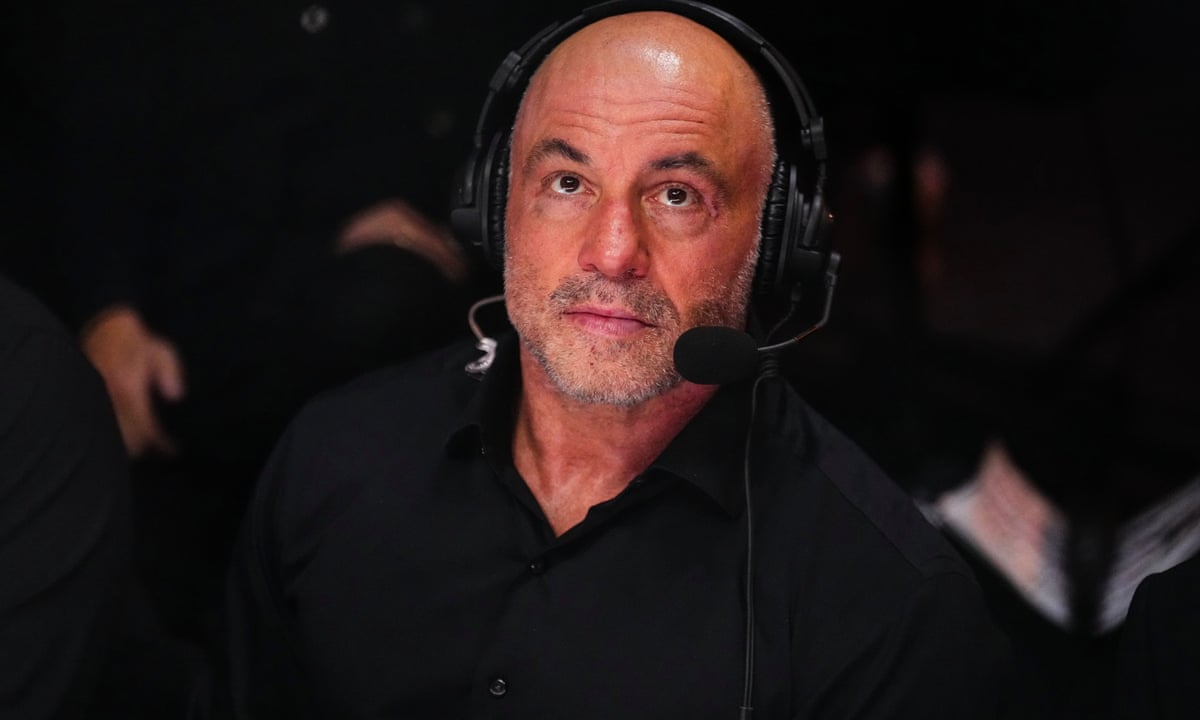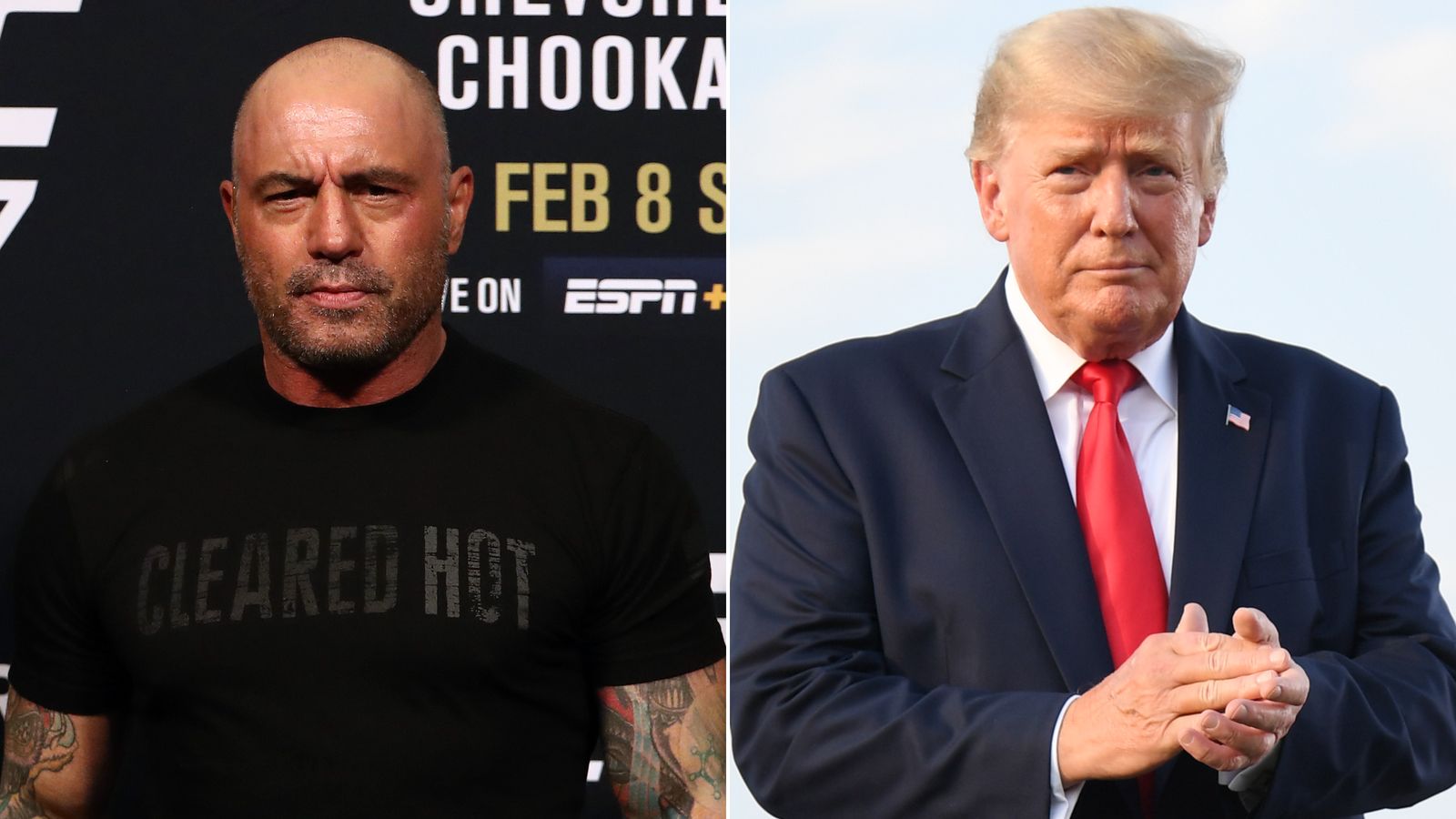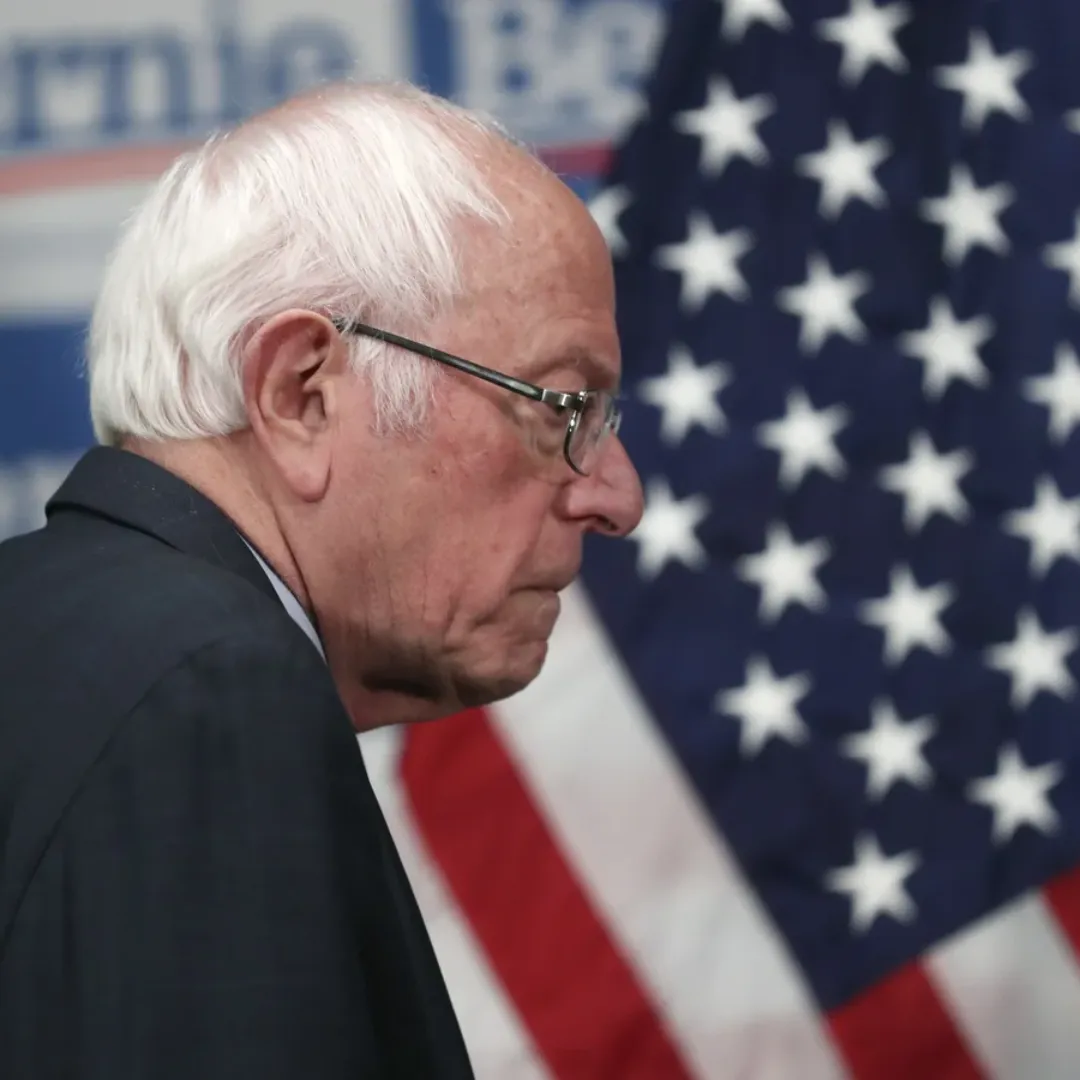
Joe Rogan, one of President Donald Trump’s most prominent celebrity supporters, is now raising serious concerns about one of the administration’s most controversial policies.
While Rogan has largely supported Trump since before the 2024 election and has continued to promote many of his ideas, the popular podcast host broke ranks recently, offering a stark warning about the dangers of abandoning due process in the government’s deportation efforts.
Rogan’s comments came in the wake of widespread controversy surrounding the deportation of Kilmar Abrego Garcia, a Maryland father who was mistakenly deported to El Salvador under the Trump administration’s crackdown on suspected gang members.
The case has highlighted broader concerns about the administration’s use of wartime powers to bypass traditional legal protections.
Speaking on a recent episode of his podcast, Rogan criticized what he described as an "over-correction" by the government, warning that the erosion of due process rights could set a dangerous precedent for future administrations.
"The over-correction is the lack of due process," Rogan said. "The over-correction is to round them all up, ship them to jail."
To illustrate his concerns, Rogan offered a hypothetical scenario involving a future administration.
"What if you are an enemy of, let’s not say any current president," Rogan said. "Let’s pretend we got a new president, totally new guy in 2028, and this is a common practice now of just rounding up gang members with no due process and shipping them to El Salvador. You’re a gang member. No I’m not. Prove it. What? I got to go to court. No. No due process."

Rogan paused and then issued a clear and urgent warning. "That is dangerous," he said. "We got to be careful that we don’t become monsters while we’re fighting monsters."
Rogan’s comments ignited a firestorm across social media, drawing reactions from across the political spectrum. Among those who agreed with his assessment was Democratic political analyst and CNN contributor David Axelrod, who shared Rogan’s remarks on social media and praised him for speaking out.
"(Joe Rogan) is absolutely right," Axelrod wrote. "It may seem fine to blow up due process for Abrego Garcia and others now. But if that’s the new normal, how you going to feel when a president is elected with who you DON’T agree? And all the safeguards are gone? Is that the America we want?"
Rogan’s critique is especially significant because of his longstanding relationship with Trump and his influence among independent and conservative-leaning audiences.
His platform, "The Joe Rogan Experience," reaches millions of listeners and viewers each week, and his endorsement of Trump during the last election cycle was seen as a major boost for the president’s campaign.
By breaking from Trump on such a high-profile issue, Rogan has injected new energy into the ongoing debate about immigration enforcement, civil liberties, and the rule of law.
His comments also underscore a growing tension within the broader populist movement about how far is too far when it comes to protecting national security and public safety.
At the center of the controversy is the Trump administration’s use of the Alien Enemies Act of 1798, a rarely invoked wartime law that allows for the arrest and deportation of nationals from enemy countries during times of war or invasion. Trump recently declared that members of the Venezuelan gang Tren de Aragua posed such a significant threat to national security that extraordinary measures were justified.

Critics, however, argue that the administration’s interpretation of the law stretches its intended use far beyond reasonable limits. They point out that no formal state of war exists with Venezuela, and that using the law to deport individuals based on association rather than criminal conviction undermines the fundamental American principle of innocent until proven guilty.
For Rogan, the danger is not merely theoretical. He warned that practices normalized under one administration could easily be weaponized by future leaders with very different agendas.
"If you create a system where the government can just decide who is dangerous and ship them off without a trial, you are handing them a loaded gun," Rogan said. "And someday, that gun could be pointed at you."
Supporters of Trump’s deportation policy argue that drastic action is needed to combat the rise of violent international gangs and protect American communities. They point to violent crimes committed by gang-affiliated individuals as evidence that current immigration enforcement mechanisms are insufficient.
However, civil liberties advocates counter that fighting crime must not come at the cost of constitutional rights. Groups like the American Civil Liberties Union have already filed lawsuits challenging the administration’s actions, arguing that they violate the Fourth and Fifth Amendments.
The case of Kilmar Abrego Garcia has become a potent symbol of the dangers of abandoning due process. Abrego Garcia, who had no criminal record and was a longtime resident of Maryland, was mistakenly classified as a gang member and deported to El Salvador’s notorious Terrorism Confinement Center.
His case drew national attention and raised serious questions about how individuals are being identified and removed under the new policies. Rogan pointed to cases like Abrego Garcia’s as clear evidence of the risks involved.
"It’s one thing to go after people who are proven criminals," Rogan said. "It’s another thing entirely to start rounding people up based on suspicion and associations and sending them off without a fair hearing."
He added, "Mistakes will happen. They always happen. And when the government has the power to act without oversight, those mistakes become tragedies."
The backlash to Rogan’s comments among Trump’s staunchest supporters has been swift. Some accused him of betraying the movement, while others argued that his concerns were overblown.
Still, the fact that someone with Rogan’s influence is willing to speak out suggests that unease about the administration’s immigration policies extends beyond traditional partisan lines.
In the broader political landscape, Rogan’s warning taps into deeper anxieties about the future of American democracy. Over the past several years, debates about the balance between security and liberty have intensified, fueled by concerns about surveillance, policing, and executive power.
Rogan’s core message is a reminder that the erosion of rights often begins with the best of intentions — protecting the public from real threats — but can quickly spiral into something far more dangerous.
"The road to hell is paved with good intentions," Rogan said. "You start by targeting people who everyone agrees are dangerous. But once you remove the guardrails, it becomes easier and easier to justify going after anyone who is inconvenient or unpopular."
For now, the Trump administration shows no signs of reversing course. Officials argue that the threat posed by international gangs justifies extraordinary measures, and that the president’s use of the Alien Enemies Act is both legal and necessary.
But with public figures like Joe Rogan now raising red flags, the conversation around immigration enforcement and constitutional protections is unlikely to die down anytime soon.
As the 2026 midterm elections approach, issues of due process, executive authority, and the limits of governmental power are poised to become even more central to the national debate. Rogan ended his discussion with a simple but powerful plea.

"We have to remember who we are," he said. "We are supposed to be a country of laws, not men. We have to fight the monsters without becoming them."




